
Meyrick Park in Bournemouth is but one example of golf course construction following the arrival of the railroad. Bournemouth’s population exploded between 1870 and 1900 from 17,000 to 60,000. Coinciding with the increase in population was the expansion of the town; many of the Victorian buildings remain today.
The story behind the creation of the parks is as complicated as it is fascinating. After the General Inclosure Act of 1801 it became evident that large swaths of common land would no longer be accessible for families who for generations used the land for grazing stock, planting crops, cutting wood, turf cutting etc. It wasn’t but a year later that the Christchurch (just north of Poole Harbour) Inclosure Act came into force. Fearful local villagers requested William West, a well educated farmer, to make representations on their behalf before the commissioners. After several years, the Commission eventually ruled that 425 acres should be set aside in five Bournemouth area locations for qualifying locals to use the land as had always been the case. Eventually, more efficient fuel sources antiquated the need for turf cutting. These five turbary commons came under the control of the newly created Bournemouth Borough Council in 1890. George Meyrick was instrumental in transferring the commons into parks, using the Five Parks Act. The result was the creation of Queens Park, Meyrick Park, Kings Park, Redhill Park and Seafield Gardens. Queens Park and Meyrick Park would include municipal courses.
Soon after the parks were established, a new Tom Dunn designed Meyrick Park Golf Course opened in 1894; it was the first municipally owned course in the country. Of Meyrick Park, Dunn wrote: ‘Nothing appeared on the surface of the land but heather, furze and pine wood; but with a hundred men, twenty horses and a scarifier, short work was soon made of this wilderness, and the links was completed in three months. It cost £2500.’ Dunn remained at the club for five years as the professional and greenkeeper. During this time he also designed nearby Broadstone GC. As was the case with Meyrick Park (1926 redesign); this too was extensively redesigned by Harry Colt. It should be noted that the course covers 122 of the 194 acres and that Meyrick Park hosts sporting recreation other than golf. In fact, next door to the golf shop and course is a recreation centre which is home to a gym, pool and restaurant. Bowls and Rugby Clubs are on the grounds as well as tennis courts. There is also the Lodge directly behind the 18th green, which is well situated for visiting Bournemouth. Finally, there are seemingly endless walking paths around the park and course. Often times, the middle of fairways admirably serve this purpose.
I am not sure what precipitated the extensive Colt redesign, but it can be fairly said that at least some of the results were outstanding...as old photos clearly demonstrate. The property is a combination of flat and unruly land, prompting some to compare it with The Addington. Because of the interesting terrain, there is an easy balance of funky and straight-forward holes which is appealing. If everything sounds too good to be true...it is. Other than the usual bunker and green size neglect, there is far more than the usual tree encroachment. Despite recent efforts to create light and airflow for greens with tree removal, Meyrick Park doesn’t just feel narrow, it is depressingly claustrophobic. So much of what could be showcased terrain is buried in decades old foliage. I might also add that the foliage can on many occasions create dangerous situations with walkers because they often cannot be seen.
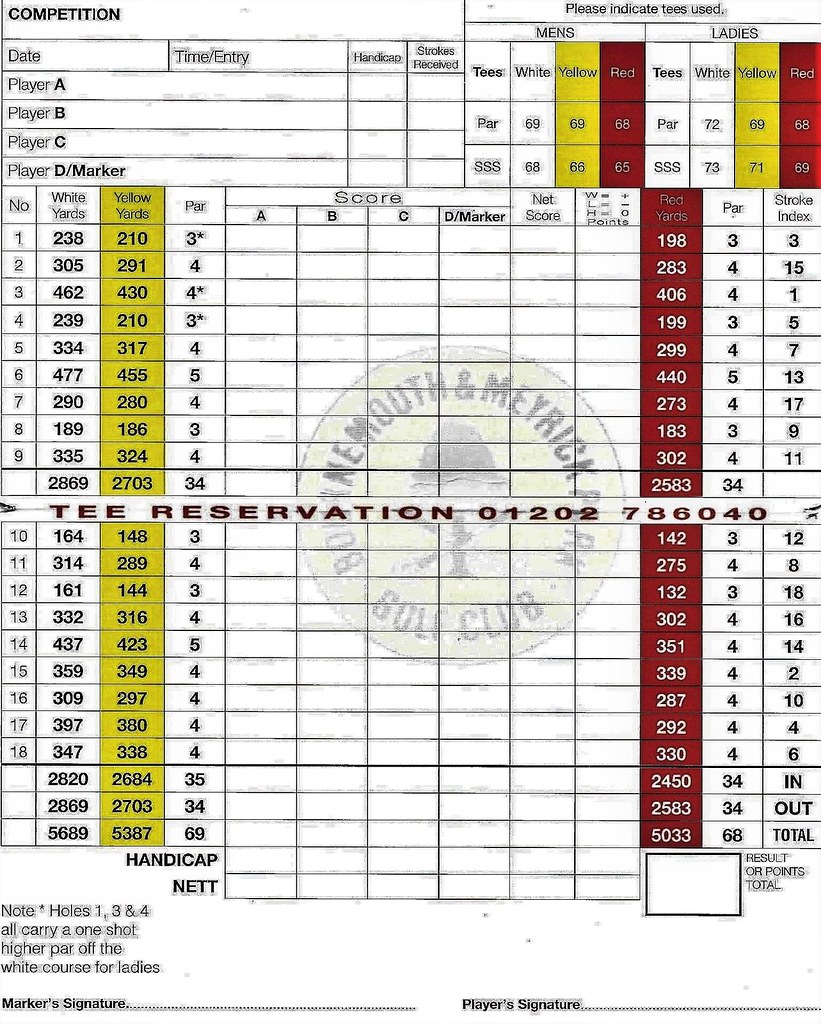
The opener is rightfully considered one of the most difficult short holes in the UK. Knowing nothing about the course except for the odd bits and bobs passed on by P Turner, I assumed this thing is a par 4! One of my playing partners quickly disabused me of that foolish notion. From the back tees it is 238 yards with virtually no place to miss.
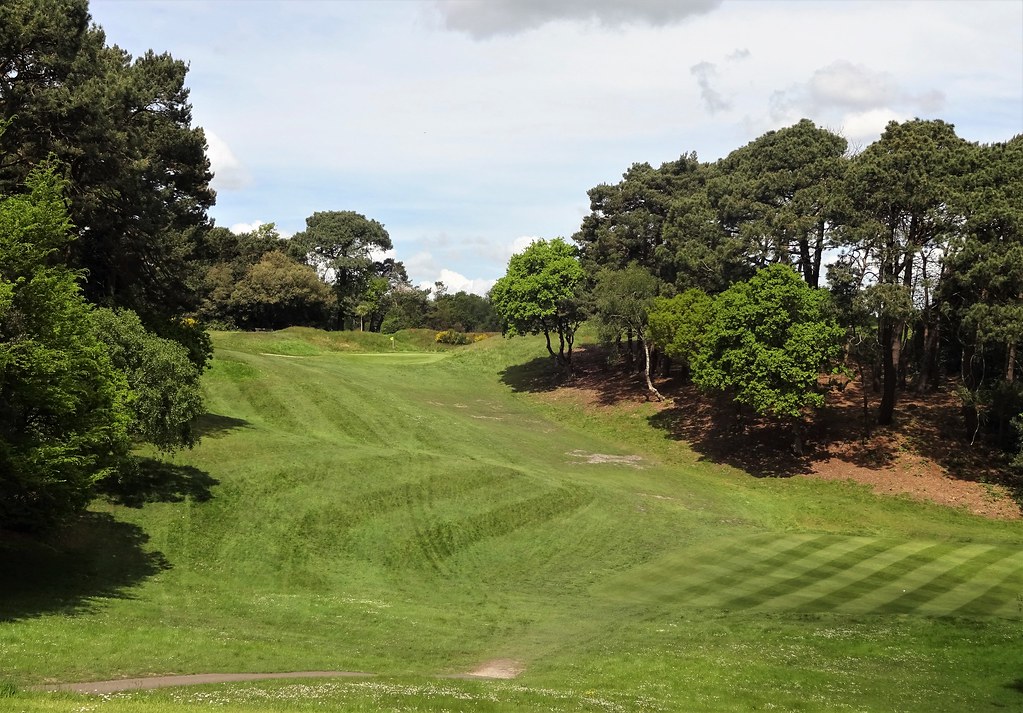
Image courtesy of T Kelly.
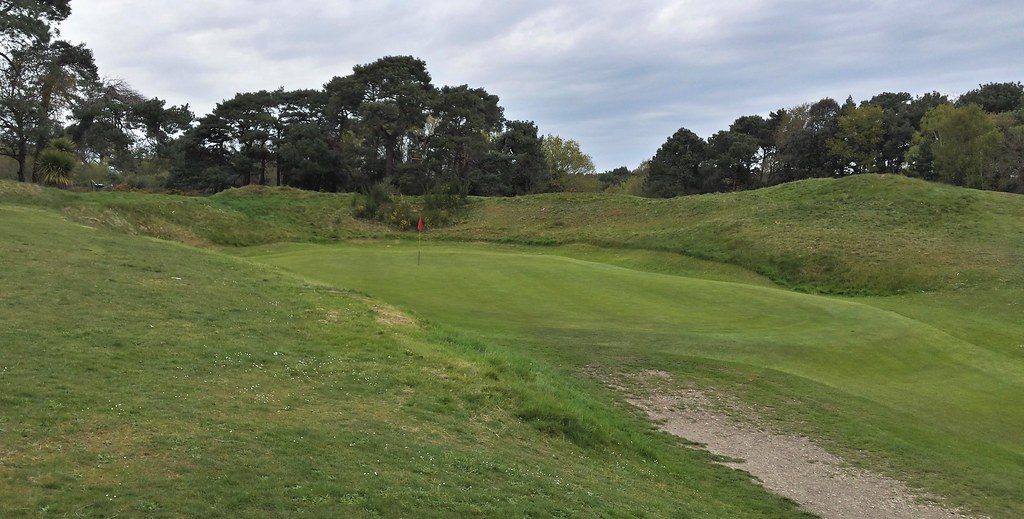
The second and third are not special holes, but they tick over without creating much fuss; although at 445 yards the third is formidable.

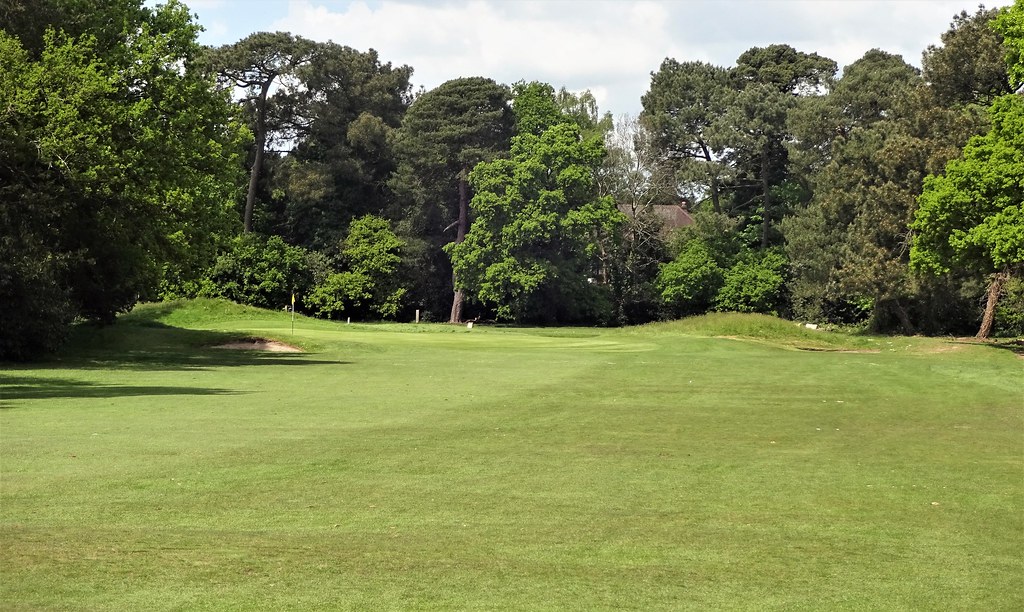
The short holes are not for the weak. The 4th measures 239 yards. One can readily see the negative effect of bunker reduction and vegetation encroachment, however, even in a denuded state this is a very good hole.
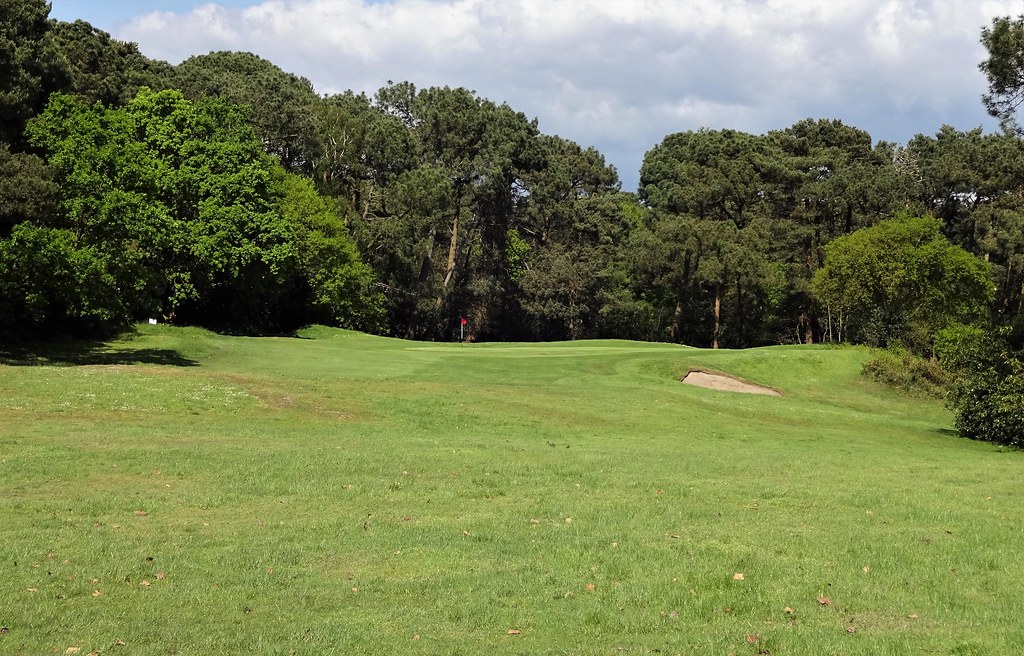
More to follow.
Ciao